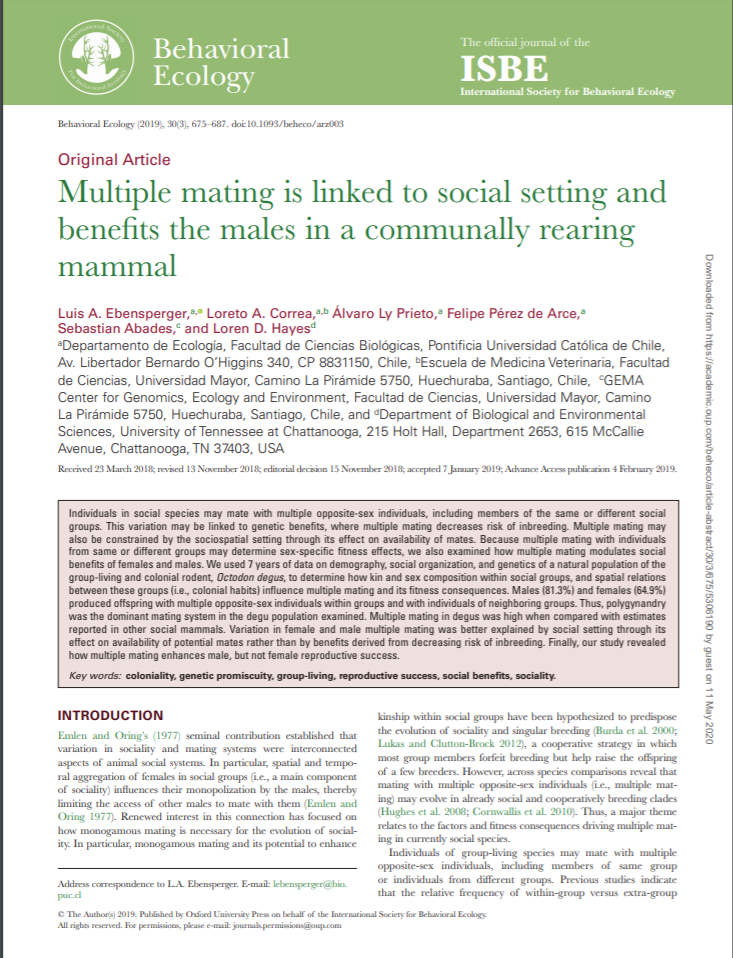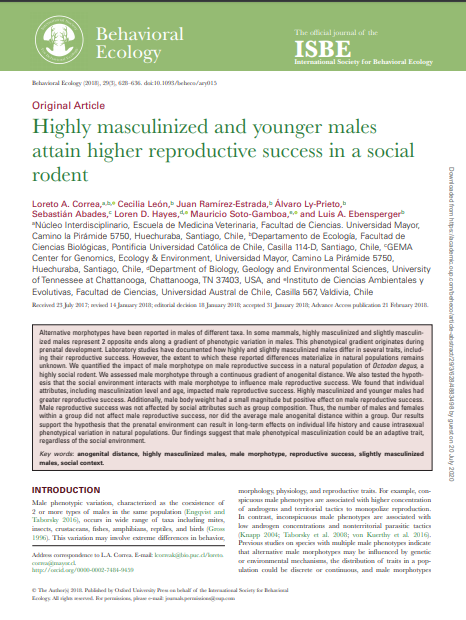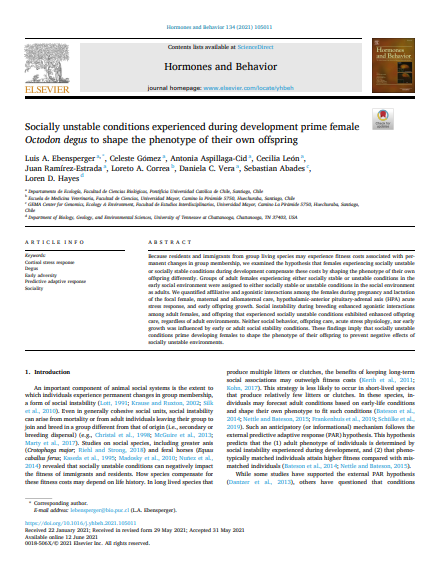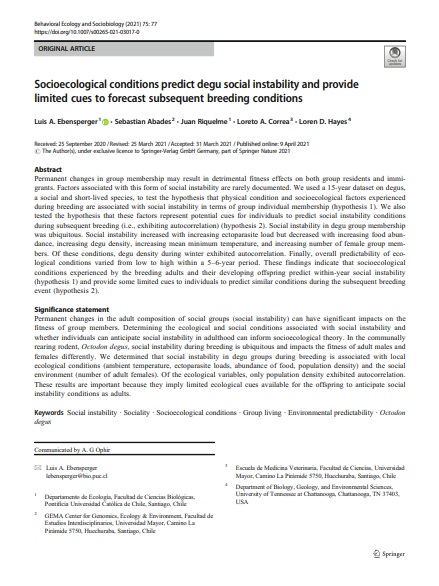Buscar
Mostrando ítems 1-5 de 5
Multiple mating is linked to social setting and benefits the males in a communally rearing mammal
(OXFORD UNIV PRESS INC, 2019)
Individuals in social species may mate with multiple opposite-sex individuals, including members of the same or different social groups. This variation may be linked to genetic benefits, where multiple mating decreases ...
Highly masculinized and younger males attain higher reproductive success in a social rodent
(OXFORD UNIV PRESS INC, 2018)
Alternative morphotypes have been reported in males of different taxa. In some mammals, highly masculinized and slightly masculinized males represent 2 opposite ends along a gradient of phenotypic variation in males. This ...
Male group members are costly to plurally breeding Octodon degus females
(BRILL ACADEMIC PUBLISHERS, 2019)
We report the results of a 6-year study of social (number of adult males/females, relatedness of females, communal litter size) and ecological (mean/CV of food abundance, soil hardness, burrow openings) factors influencing ...
Socially unstable conditions experienced during development prime female Octodon degus to shape the phenotype of their own offspring
(ACADEMIC PRESS INC ELSEVIER SCIENCE, 2021-08)
Because residents and immigrants from group living species may experience fitness costs associated with permanent changes in group membership, we examined the hypothesis that females experiencing socially unstable or ...
Socioecological conditions predict degu social instability and provide limited cues to forecast subsequent breeding conditions
(SPRINGER, 2021-05)
Permanent changes in group membership may result in detrimental fitness effects on both group residents and immigrants. Factors associated with this form of social instability are rarely documented. We used a 15-year dataset ...



